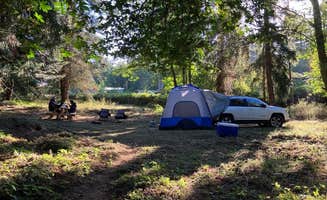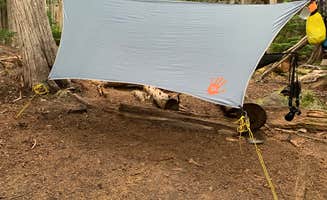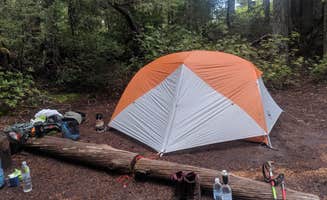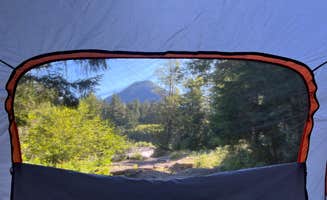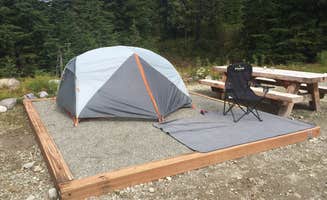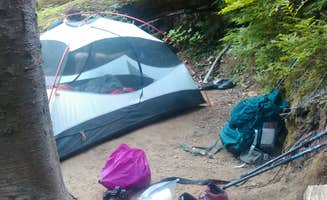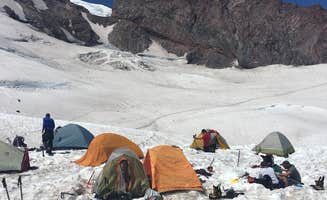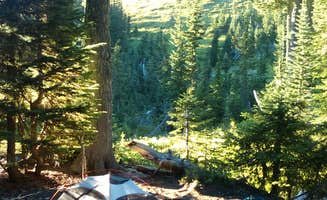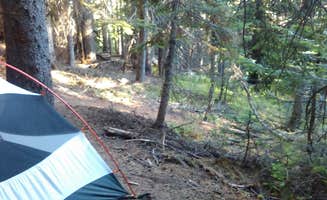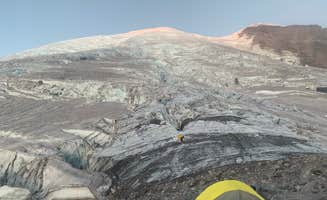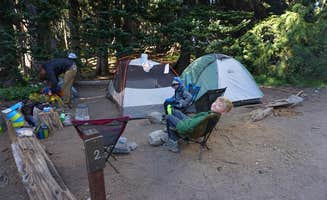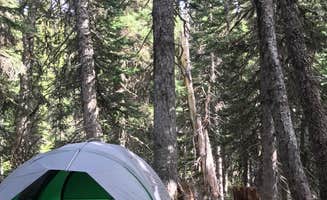Tent campsites near La Grande, Washington cluster around the Carbon River region of Mount Rainier National Park at elevations ranging from 1,800 to 5,500 feet. Summer temperatures typically reach 70-85°F during daytime hours but can drop to 40-45°F overnight even in July and August. Rainfall averages 2-3 inches monthly during peak camping season, with afternoon thunderstorms common in higher elevation areas.
What to do
Hike to alpine lakes: From Mowich Lake Campground, take the 2-mile trail to Eunice Lake where the clear blue-green waters reflect surrounding peaks. "We did the Tolmie Peak trail and the trailhead is straight off the campground which is super nice," notes Megan H.
Explore rainforest trails: The Carbon River area features one of the only inland temperate rainforests in the continental US. The moist environment supports unique moss and fern ecosystems. "We did some sunrise hikes as well as sunset. Recommend!! Very busy—both the campground and the park," shares Melani T. about Ipsut Creek.
View glaciers: Visit Carbon Glacier, accessible via a suspension bridge near Carbon River Camp. "If you made it this far make sure you continue across the suspension bridge over the carbon river and the short hike to the lowest glacier in the lower 48," recommends KN Y.
Wildlife viewing: Early mornings offer opportunities to spot black-tailed deer, elk, and various bird species. "The wildlife (deer) that wandered through every morning was delightful," reports Kyle G. from Paradise Pines.
What campers like
Private campsites: Many backcountry tent sites offer seclusion despite their proximity to others. "We liked this one best for setting up 2 hammocks, although you are surrounded by other sites and on the trail to the rest of the campground. We still felt we had good privacy," writes Kier S. about Eagles Roost Camp.
Natural soundscapes: Flowing water creates peaceful ambient noise at many campsites. "Most sites give you the feeling of privacy and with the waterfall close by there is constant white noise that while not overpowering it drowns out any neighbors," notes Kier S.
Clear night skies: The area's distance from major cities provides exceptional stargazing opportunities. "Really loved my stay here. The best time of year to come is the summer because the weather is warm and the hiking is amazing!! Very close to Rainier National Park," says Adeline T. about Ipsut Creek.
Water features: Campsites near rivers and lakes offer both recreational opportunities and practical benefits. "The lake is absolutely beautiful and there are so many different trails branching off of it," shares Megan H.
What you should know
Elevation and temperature shifts: Even summer nights can be cold. "Even in July there is snow and temperatures reached as low as 40°F. Fortunately we were prepared, but you may not be," cautions kasey at Mowich Lake.
Road access limitations: Many access roads are unpaved and challenging. "The gravel road to get up there, it's like 15 miles long and it's rough. Not the worst road I've ever been on but it wasn't fun and it felt like you had to drive it forever," explains Megan H.
Early arrival recommended: Most non-reservable sites fill quickly, especially on weekends. "We got there at like 3pm on a Tuesday and got one of the last 2 spots, it definitely fills up fast even during the week," reports Megan H.
Limited amenities: Most sites lack running water. "There is no potable water, we filtered our water at the stream with the log bridge," notes Danielle S. about Carbon River Camp.
Tips for camping with families
Accessible wildlife experiences: Some campgrounds offer regular wildlife viewing opportunities. "Our family loves staying in private camp sites. With little kids you really can't beat it! Paradise Pines was exactly what we were looking for," shares Dara M.
Sites with tent platforms: These provide better sleep surfaces, especially when ground may be damp. "Each spot had a raised platform for your tent, bear box, and picnic table. Bathroom was basic but seemed decently clean," observes Megan H.
Consider campsite layout: Look for sites with natural boundaries for child safety. "The campground was beautiful for car campers! It's a loop layout with trash/recycle, bathrooms and designated box type platforms for the tents," explains Jessie T.
Bring warm clothing: Even summer camping requires warm layers. "It definitely gets cold up there even in mid August so pack warm!" advises Megan H.
Tips from RVers
Limited RV access: Most Mount Rainier area campgrounds are tent-only or have significant size restrictions. "The road can be a bit thin, so I would be careful with extra large vehicles. It is also a bit of a challenging road, so low clearance vehicles wouldn't be treated well," warns P J. about White River Dispersed Camping.
Dispersed options: Forest Service roads offer primitive camping opportunities for smaller RVs and truck campers. "It is a bit of a challenging road, so low clearance vehicles wouldn't be treated well. It's a great location. Some spots close to the water and others in the trees," adds P J.
Parking limitations: Some campgrounds require separate parking away from tent sites. "You will have to carry your gear up you cannot park next to your site," notes Laura F. about Mowich Lake.


